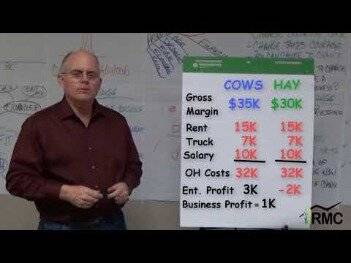Accounting by Manufacturing Companies
by MindTech

This information helps companies arrive at better decisions about when to buy materials and sell products. A manufacturing account is one of the three accounts in the accounting system, the other two being a trading account and balance sheets. This includes any items used in the production process but is not yet part of the finished product. Moreover, it is dubbed a complete business because it buys the raw materials used to create a product before selling it.
- They are the lowest organizational level within your business and the level at which you account for all revenues, expenses, assets, liabilities, and equity.
- The accounting department in a manufacturing company plays a vital role in the business’s overall success.
- To end this article, let us take a look at some manufacturing accounting best practices that should be on top of the to-do list.
- The responsibilities of the accounting department include maintaining accurate financial records, preparing reports, and ensuring compliance with regulations.
- The accounting department in a manufacturing firm has several accounting controls.
Margin analysis often involves tracking and accounting for all the costs involved in the production and then subtracting those costs from the total value those steps generate. While keeping production costs to the minimum, businesses need to look to methods that allow them to make the best of their inventory, ensuring they produce quality products while also sustaining seamless cash flow. From inventory and labor expenses to taxes and bookkeeping costs, accounting for manufacturing companies entails several aspects that need to be considered. Real-time costing for components and finished goods can provide more accurate insights for manufacturers. This improves manufacturing costing and accounting with features to integrate data, highlight costs, and evaluate overall business health on a continuing basis.
The accounting department also plays a crucial role in detecting and preventing fraud. By carefully monitoring financial transactions, they can quickly identify any suspicious activity. For example, an accountant may work with the production manager in a manufacturing firm to develop a budget for the upcoming year. By understanding the firm’s financial position and objectives, the accountant can help the production manager make informed decisions about allocating resources.
Electric Car Models Eligible for $7,500 Tax Credit Cut to 13 (
As the backbone of any company, the accounting department is responsible for various financial tasks, from maintaining records and preparing reports to processing invoices and managing payroll. The company should implement a method for monitoring deadlines and should implement results to track how well the accounting department performs. This system can include reports or dashboards that track key performance indicators (KPIs). In conclusion, having an effective accounting structure is essential for any manufacturing firm. These five positions are critical components of a successful accounting department structure, and each role plays a vital role in helping the firm to maximize profits and reduce costs. These individuals are responsible for recording daily financial transactions, preparing bank deposits, reconciling accounts payable and receivable, and producing reports for management.
The goal of going through the process shown in Figure 1.7 is to arrive at a cost of goods sold amount, which is presented on the income statement. Custom Furniture Company’s income statement for the month ended May 31 is shown in Figure 1.8 . As you review Figure 1.7 and Figure 1.8 , look back at Figure 1.6 to see how costs flow through the three inventory accounts and the cost of goods sold account. Effective cost management lies at the core of the manufacturing sector’s financial stability and long-term profitability.
THE IMPORTANCE OF CASH FLOW MANAGEMENT FOR EVERY BUSINESS OWNER
We recommend using software that is well integrated with the overall production and inventory management solution of choice. This ensures seamless data movement between the shopfloor, inventory, and the back office, and further simplifies managing your business. If you are yet to implement a manufacturing ERP system, consider picking one with built-in financial reporting capabilities. For example, MRPeasy includes one-click product cost estimating, intelligent reporting, and built-in integrations with major financial software providers like Xero and QuickBooks Online.

It will avoid a situation where you have too much inventory (which costs money) or, even worse, not enough inventory, where you cannot fulfill the requirements of your customers. Manufacturing accounting is the process of forecasting, analysing, and reporting on the financial status of a manufacturing organisation. Manufacturing accounting also involves tracking raw material costs, making inventory valuations, and strategically pricing finished goods. Manufacturing accounts can help businesses track their production costs, materials used, and inventory levels. Manufacturing accounts can also help businesses budget for future production costs.
Best Practices for Improving Manufacturing Accounting
Now that we have gained a deeper understanding of the theoretical foundations of the manufacturing accounting process flow, let’s explore how it functions in real-world scenarios. With the right accounting systems in place for your manufacturing business, you’ll be able to optimize your processes. This will help you identify your most profitable product lines and customers and improve your budgeting – which will help your business to grow. As you can see, accountancy for manufacturing is about much more than just recording numbers. With the right manufacturing accounting software you’ll get a fresh, valuable perspective on the way your business is running.
- In addition, any abnormal costs incurred, such as excessive scrap, are not recorded in inventory, but instead are charged directly to the cost of goods sold.
- It can help you hone which products are profitable and spot opportunities to drive better results for your existing products.
- Fixed labour costs could include contractors, technicians, and maintenance staff with set jobs to do with set fees.
- Auditing allows a manufacturing business to ensure that the accounting processes and standards deployed in analyzing a company’s finances are up to the mark.
- Carefully gathered financial information can help companies to identify bottlenecks in their manufacturing and increase efficiency.
- The chart of accounts is a record of the valid accounts you assign to the business units within your company’s reporting structure.
The wages of the worker who assembles the tables are direct labor, but not the salary of the janitor who keeps your factory clean. It helps facilitate analysis and efficiency refinement for businesses that revolve less around each unit and more around repetitive procedures. However, specific identification is usually only possible for manufacturing businesses that produce a low volume of differentiated products.
Costing Methods for Manufacturing Businesses
This structure helps keep all accounting department members organized and on task and effectively allows them to work together as a cohesive unit. Additionally, this helps ensure compliance with financial regulations and accountability for the organization’s finances. In addition, the accounting department may provide analysis of AP data to help management make an informed decision about vendor contracts and payment terms. It includes the initial posting of each transaction and the maintenance of subsidiary and general ledgers.
Integrating or upgrading your accounting software, though important, runs the risk of increasing errors in your recorded business data. Here are some best-practice tips for conducting successful manufacturing accounting. Fixed labour top 25 small business tax deductions costs could include contractors, technicians, and maintenance staff with set jobs to do with set fees. Variable costs, on the other hand, can include assembly line workers whose roles change as you produce higher volumes.
There are likely hundreds of software tools available that help with accounting for manufacturing costs. You’ll need to speak with your accountant or financial advisor and consider your current budget before making an informed decision. Material costs cover all the inventory stock items that go into a finished product.
These articles and related content is the property of The Sage Group plc or its contractors or its licensors (“Sage”). Please do not copy, reproduce, modify, distribute or disburse without express consent from Sage. These articles and related content is provided as a general guidance for informational purposes only. These articles and related content is not a substitute for the guidance of a lawyer (and especially for questions related to GDPR), tax, or compliance professional. When in doubt, please consult your lawyer tax, or compliance professional for counsel.
Recommended Posts
Statement of Stockholders Equity Explained
July 26, 2023
The Ultimate Guide to Outsourced Accounting Services
January 18, 2022
Orlando Bookkeeping Services Orlando Bookkeeping
November 26, 2020

